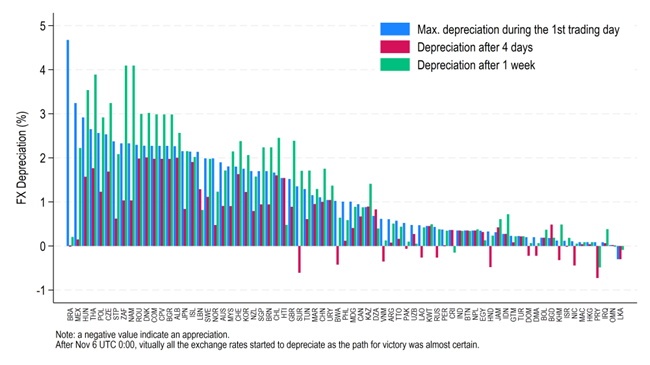NEW YORK — Prosecutors from Manhattan District Attorney Alvin Bragg’s office said Tuesday that they oppose Donald Trump’s bid to throw out the Manhattan hush money case now that he is president-elect, but do not object to an indefinite delay of the sentencing for his criminal conviction.
They appeared to concede the possibility, if not the likelihood, that Trump’s sentencing would have to be delayed until after he leaves office in January 2029.
Prosecutors suggested the judge who oversaw the trial, Justice Juan Merchan, give both Trump and prosecutors an opportunity to argue over Trump’s claim that dismissing the case is “necessary to avoid unconstitutional impediments to President Trump’s ability to govern.”
In a letter to Merchan, prosecutors proposed a Dec. 9 deadline to present those arguments — a timeline that would mean postponing Trump’s Nov. 26 sentencing hearing.
But they said they disagreed with Trump’s position, raised in a letter to Bragg’s office three days after the 2024 election, that the entire case, including the jury’s guilty verdict on 34 felony counts, should be tossed in light of Trump’s electoral victory.
The prosecutors acknowledged that sitting presidents are generally thought to be immune from prosecution. But that principle, they wrote, does not mandate the dismissal of “a post-trial criminal proceeding that was initiated at a time when the defendant was not immune from criminal prosecution and that is based on unofficial conduct.”
Prosecutors added that they “deeply respect the Office of the President, are mindful of the demands and obligations of the presidency, and acknowledge that Defendant’s inauguration will raise unprecedented legal questions. We also deeply respect the fundamental role of the jury in our constitutional system.”
After Trump first requested the case be tossed in the wake of the election, Merchan agreed to pause all proceedings in the case, including a ruling that had been expected last week on whether the Supreme Court’s July decision on presidential immunity requires that Trump’s conviction be thrown out.
In May, Trump was convicted in the Manhattan case of 34 counts of falsifying business records to cover up a hush money payment to porn star Stormy Daniels. Over the summer, he twice succeeded in having his sentencing postponed, ultimately pushing it until after Election Day.
The maximum sentence for falsifying business records is four years in prison. Lesser sentences like probation or home confinement are also possible.
In the original letter requesting dismissal of the case, which was also made public Tuesday, Trump lawyer Todd Blanche wrote that it should be thrown out “due to new, fatal Presidential immunity problems based on President Trump’s current status and his ongoing official acts in connection with the transition of Executive power.”
Just like a sitting president is immune from prosecution, Blanche wrote, “the same complete immunity from criminal process of any kind extends to a President-Elect during the transition period. There is no material difference between President Trump’s current status after his overwhelming victory in the national election and that of a sitting President following inauguration.”
Subjecting Trump to criminal proceedings, including a sentencing, Blanche argued, would derail the transition process. Trump’s lawyer, whom the president-elect tapped to be his deputy attorney general if confirmed, also argued that it would be improper even to delay a sentencing until Trump leaves office in 2029, calling that timing “impermissible” under the law.
A looming criminal sentencing hanging over Trump’s head, Blanche wrote, would impede his performance as president.














